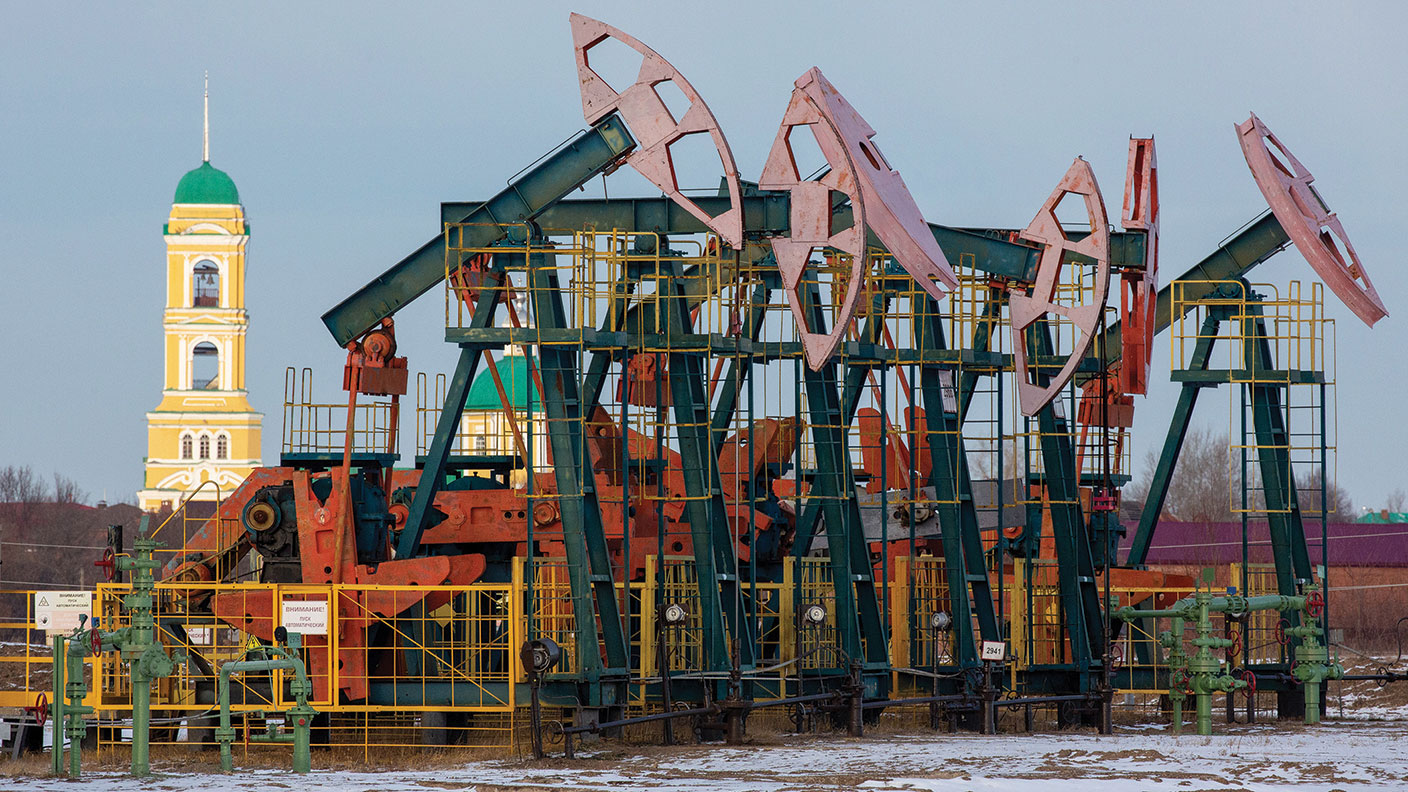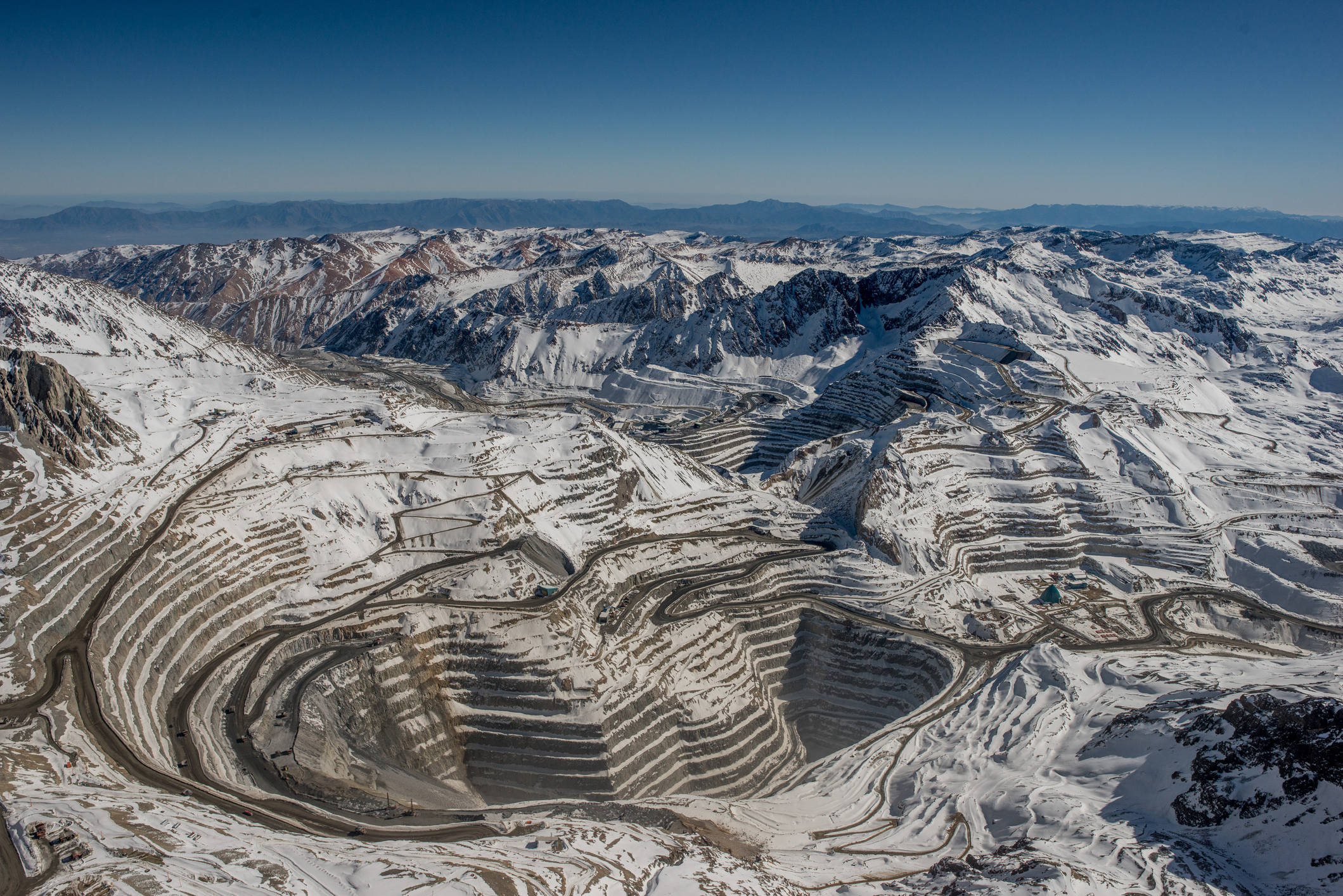Oil shortage starts to curb demand
The price of Brent crude oil is up by 475% since its March 2020 low. And when oil prices rise, people start to reduce consumption, leading to increased fears of a recession.

Get the latest financial news, insights and expert analysis from our award-winning MoneyWeek team, to help you understand what really matters when it comes to your finances.
You are now subscribed
Your newsletter sign-up was successful
Want to add more newsletters?

Twice daily
MoneyWeek
Get the latest financial news, insights and expert analysis from our award-winning MoneyWeek team, to help you understand what really matters when it comes to your finances.

Four times a week
Look After My Bills
Sign up to our free money-saving newsletter, filled with the latest news and expert advice to help you find the best tips and deals for managing your bills. Start saving today!
“The oil price says a trans-Atlantic recession is almost nailed on,” says Russ Mould of AJ Bell. “Since 1970, the oil price has doubled year-on-year six times and on four of those occasions the US and UK have gone into recession within the next two years.” At around $116 a barrel, Brent crude is up by 475% since its March 2020 nadir. “Everyone is waiting nervously to see if 2021 makes it five out of six.”
Prices got an extra boost this week as G7 leaders discussed plans to impose a price cap on Russian oil. That may exacerbate existing supply problems. “About two million barrels a day of Russian oil and refined-product supplies” are unable to enter global markets at present because of sanctions, says Myra Saefong in Barron’s. “US production, meanwhile, hasn’t climbed back to pre-Covid-19 levels” because of “pandemic-related labour shortages and supply-chain constraints”.
Don’t expect Opec+ to ride to the rescue either, says Pavel Molchanov of bank Raymond James. The producer group, which includes Saudi Arabia and Russia, underproduced its output target by 2.616 million barrels a day in May. There is “very limited spare capacity in the Middle East, and none outside the Middle East”. Iran has capacity, but its exports are subject to sanctions.
MoneyWeek
Subscribe to MoneyWeek today and get your first six magazine issues absolutely FREE

Sign up to Money Morning
Don't miss the latest investment and personal finances news, market analysis, plus money-saving tips with our free twice-daily newsletter
Don't miss the latest investment and personal finances news, market analysis, plus money-saving tips with our free twice-daily newsletter
Enthusiastic oil bulls dominate online conversations about energy, says Jared Dillian on Bloomberg. Many “predict oil will rise to $200 a barrel. In fact, call options with a $200 strike price have traded rather briskly in recent weeks”. Yet fears of a recession have seen oil prices fall 7% since they topped $124 a barrel in early June.
When oil prices rise, people start to reduce consumption. “The only constant in financial markets is that when bullish or bearish sentiment becomes crowded, it is usually profitable to go the other way.”
Get the latest financial news, insights and expert analysis from our award-winning MoneyWeek team, to help you understand what really matters when it comes to your finances.
Alex is an investment writer who has been contributing to MoneyWeek since 2015. He has been the magazine’s markets editor since 2019.
Alex has a passion for demystifying the often arcane world of finance for a general readership. While financial media tends to focus compulsively on the latest trend, the best opportunities can lie forgotten elsewhere.
He is especially interested in European equities – where his fluent French helps him to cover the continent’s largest bourse – and emerging markets, where his experience living in Beijing, and conversational Chinese, prove useful.
Hailing from Leeds, he studied Philosophy, Politics and Economics at the University of Oxford. He also holds a Master of Public Health from the University of Manchester.
-
 Early signs of the AI apocalypse?
Early signs of the AI apocalypse?Uncertainty is rife as investors question what the impact of AI will be.
-
 Reach for the stars to boost Britain's space industry
Reach for the stars to boost Britain's space industryopinion We can’t afford to neglect Britain's space industry. Unfortunately, the government is taking completely the wrong approach, says Matthew Lynn
-
 Barings Emerging Europe trust bounces back from Russia woes
Barings Emerging Europe trust bounces back from Russia woesBarings Emerging Europe trust has added the Middle East and Africa to its mandate, delivering a strong recovery, says Max King
-
 No peace dividend in Trump's Ukraine plan
No peace dividend in Trump's Ukraine planOpinion An end to fighting in Ukraine will hurt defence shares in the short term, but the boom is likely to continue given US isolationism, says Matthew Lynn
-
 Investors need to get ready for an age of uncertainty and upheaval
Investors need to get ready for an age of uncertainty and upheavalTectonic geopolitical and economic shifts are underway. Investors need to consider a range of tools when positioning portfolios to accommodate these changes
-
 Is the market missing the opportunity in energy?
Is the market missing the opportunity in energy? -
 Halifax: House price slump continues as prices slide for the sixth consecutive month
Halifax: House price slump continues as prices slide for the sixth consecutive monthUK house prices fell again in September as buyers returned, but the slowdown was not as fast as anticipated, latest Halifax data shows. Where are house prices falling the most?
-
 Rents hit a record high - but is the opportunity for buy-to-let investors still strong?
Rents hit a record high - but is the opportunity for buy-to-let investors still strong?UK rent prices have hit a record high with the average hitting over £1,200 a month says Rightmove. Are there still opportunities in buy-to-let?
-
 Pension savers turn to gold investments
Pension savers turn to gold investmentsInvestors are racing to buy gold to protect their pensions from a stock market correction and high inflation, experts say
-
 6 stocks to buy to invest in Latin America
6 stocks to buy to invest in Latin AmericaThe region is the world’s one-stop shop, boasting the raw materials required for the energy transition and key foodstuffs to cater for growing populations, says James McKeigue. Here’s how to profit.